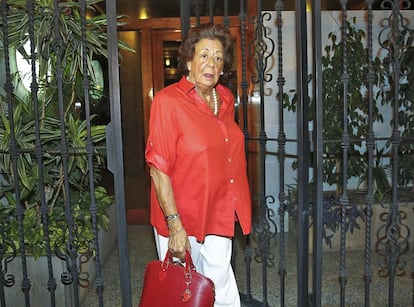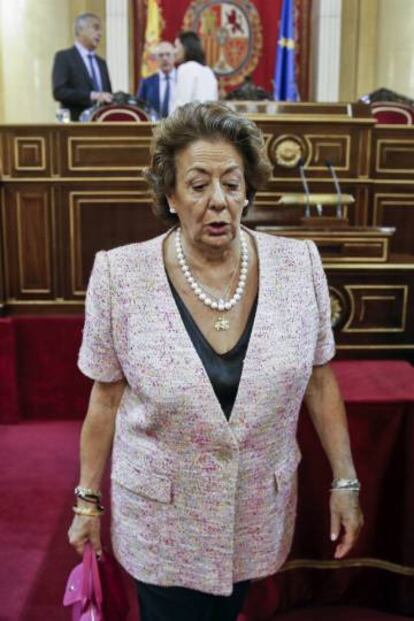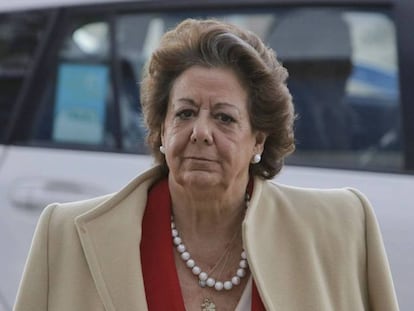Embattled PP veteran clings to Senate seat despite party pressure to stand down
Former Valencia mayor Rita Barberá is close to becoming official suspect in corruption case


Rita Barberá, a veteran member of Spain’s Popular Party (PP) who served for 24 years as mayor of Valencia, turned in her party membership on Wednesday as a result of her alleged involvement in a corruption probe.
But the 68-year-old politician only did so after resisting party pressure over previous days, and refused to give up her seat in the Spanish Senate, as she had also been asked to do.
I am expressing my will to remain in the Senate. Doing otherwise could be construed as an admission of guilt
Rita Barberá
The PP’s leadership had been hoping for more from Barberá, whose image has been tarnished after her name turned up in Operation Taula, an investigation into illegal financing in PP-run towns and cities across the Valencia region.
On Tuesday, the Supreme Court announced that it will investigate her alleged role in an illegal party financing network thought to have operated out of Valencia City Hall. She could soon become an official suspect in the case.
In a message sent around 5.30pm to the party leadership, Barberá wrote that she was taking the “painful decision” to renounce her PP membership, but not her senatorial seat.

“I am hereby expressing my will to remain [in the Senate seat], as the law allows me to do, because doing otherwise could be construed as an admission of guilt,” she wrote.
Party leaders had been asking her to give up both since Tuesday, but PP sources say that Barberá’s reply was: “It’s my seat.”
A personal friend of acting Prime Minister Mariano Rajoy, she has supported him through difficult times in the past. On Wednesday, Rajoy deflected reporters’ questions about the issue.
Barberá’s refusal to give up her Senate seat – which affords her immunity from the lower courts – will hurt the PP, which is already struggling with a string of corruption cases ahead of regional elections in Galicia and the Basque Country.
Spain in deadlock
At the general election of December 20, 2016, the PP lost its absolute majority and was incapable of finding allies to form a government, because opposition leaders did not want to associate themselves with Rajoy or the PP.
The deadlock led to a fresh election on June 26, which the PP won again while still falling short of a congressional majority.
Ciudadanos, the only party to have reached a preliminary deal with the PP in an effort to form a government – although support from third parties would still be required – required Rajoy to sign a document pledging to suspend any elected official who is under investigation for corruption.
The caretaker PM was recently voted down in a reinstatement bid, and Spain remains stuck in a political limbo that could see a third election take place on Christmas Day.
English version by Susana Urra.









































